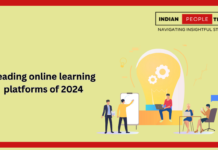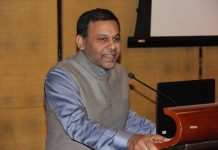Education is a comprehensive methodology that helps in making our future prosperous and bright. It is the substrate on which our future will flourish or perish. When we talk about sustainable development, we look at a holistic definition given by Brundtland in 1987. It defines sustainable development as ‘development that meets the needs of the present without compromising the ability of future generations to meet their own needs.’ It acknowledges that while on one side development is crucial to meet human needs and elevate the quality of life, it must not take place at the cost of depleting the ability of natural resources to cover the present and future needs.
This is where the role of sustainable education comes into play. Sustainable education in India is the need of the hour. It emphasizes on a change in educational culture. This culture focuses on deeper attention to education and its paradigms, policies, practices and purposes. Indian education needs to be aligned with the sustainable goals aiming at peace and development. We have to ensure that the learning and education imparted connects to the goal of sustainable development in an inclusive society.
If we look at the world surface area, India occupies a meagre 2.5% space. But it sustains 18% of the world’s population. The United Nations Food and Agriculture Organization has predicted that by 2025, close to 1.8 billion people would be inhabiting regions with severe water scarcity. We are also headed towards a future that will have shortage of food, mineral and natural resources.
This data looks grim and scary. But the fact is that the earth can sustain many more billions, conditionally all these people make better and informed choices which would be a result of sustainable education. We must understand the role of education in the context of sustainable future. Implementing these values in Indian education is extremely important and it would require administrative and political support.
We are at a very critical juncture with our 1.3 billion population. By 2050, the figure will reach 1.6 billion, thereby making our country one of the youngest countries in the world. Indian people are known to be humble, caring as well as sharp and it is time we use our skills to make a better place for our next generation. We need to add sustainable education in our lives to achieve constructive changes at all levels.
Sustainable education has four metrics – sustaining, tenable, healthy and durable.
- Sustaining – It aids in sustaining people, ecosystems and communities
- Tenable – It works with integrity, respect, inclusiveness and justice.
- Healthy – As a viable system, it nurtures healthy relationships at different system levels.
- Durable – It is strong enough to work well in the long run and let people practice it without fail.
Envisioning and taking practical, realistic steps is the key to sustainable education. As a society, all of us need to engage in this critical learning process, which will directly impact and lead to a sustainable future. Such learning requires education systems, developers and institutions to work responsibly. That is the real context for any purposeful learning.
🔥410












